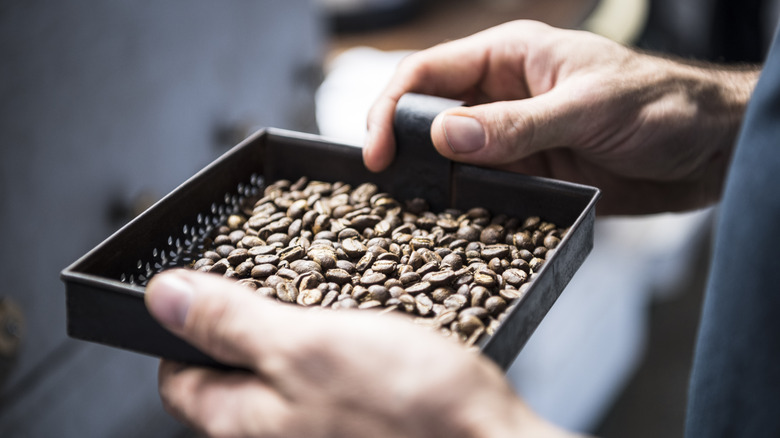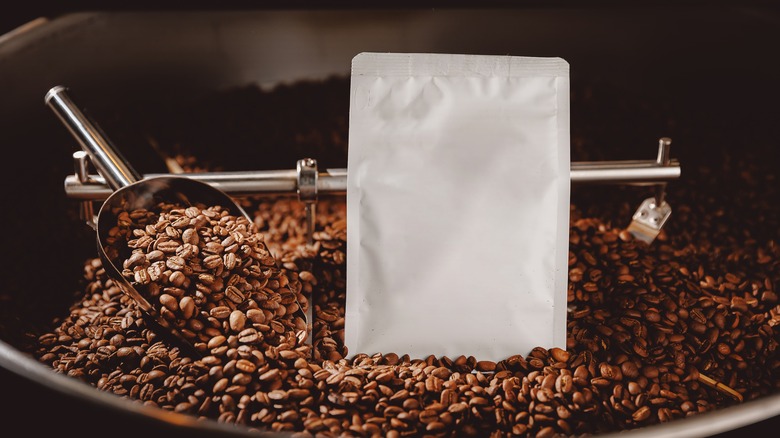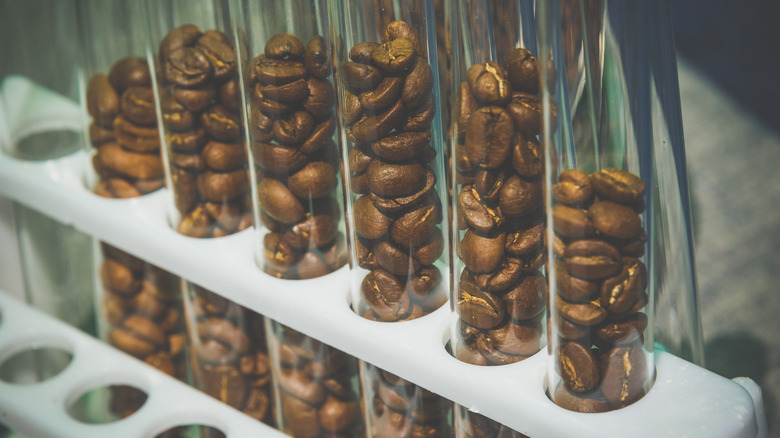Why It's So Important To Freeze Coffee Beans The Right Way
Over the years, coffee lovers have tried all sorts of tricks to get the most flavor out of their beans. From using hot chocolate to save a bad cup of coffee to fixing overly acidic coffee with baking soda, all of these methods might sound strange to most people. But for coffee lovers, the logic is clear: When it comes to getting a better cup, anything goes.
That's why some have taken to throwing their coffee beans into the freezer. Supposedly, this can prolong freshness by slowing the breakdown of volatile oils and aromas. It's more or less the same principle of freezing veggies to keep them fresh for longer.
And it does work! According to Farm & Forest Coffee Roasters, you'll get extra life out of your coffee beans this way by minimizing their exposure to oxygen, light, heat, and moisture. But there's a catch: You've got to do it right. Instead of freezing the whole bag, it's better to split it into smaller, airtight portions or to vacuum-seal the beans.
Freezing coffee beans won't make it last longer
Many people think they can just toss their coffee bag into the freezer and forget about it until they need the beans for a brew. Not quite! Once your coffee is frozen, it's best to leave it undisturbed for as long as possible. So, if you do plan to freeze your beans, a standard 12-ounce bag is a terrible container for them. If you keep opening and closing the bag for your daily brew, you'll introduce warm air into the bag, which can cause the beans to oxidize and their quality to plummet even when they're still in the freezer.
Coffee beans are also hygroscopic, which means they absorb moisture. When frozen in a container that's not airtight, the beans will take on the moisture in the freezer, along with the odors and tastes of their surroundings. So, if you bring home that 12-ounce bag of freshly roasted beans and plan to store them in the bag, that's totally fine — but you'll want to pop the bag in your pantry instead. You'll get a much better brew without the hassle of dealing with oxidized, moisture-logged beans.
Portioning is the way to go
The only time you should think about freezing your coffee beans is if you're single-dosing it. Single dosing means you measure out the exact amount of beans you need for one brew and store each portion separately for easy use. People typically put them into little vials like those used in science labs, or they can also use vacuum-packed baggies for the same effect.
As Kaleena Teoh, co-founder of the Coffee Project New York, told Martha Stewart, vacuum-packed baggies are the best way to freeze your coffee. Unlike freezing the whole bag, single dosing enables you to keep every bean in good shape. Because each portion is frozen separately, you'll only take out what you need, keeping the rest nice and cold in the freezer so they don't get affected by oxidation. Even better, if each portion is fully vacuum-sealed with no air inside the packaging while in the freezer, the coffee will last longer. This, along with the cold air in the freezer, helps keep the beans fresh for longer so that even several months down the line, you'll still have a dose of coffee beans at the ready for a spontaneous Shakerato!


